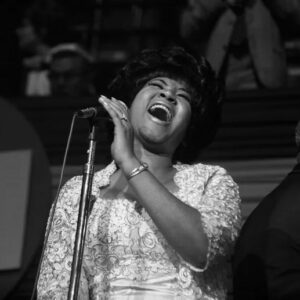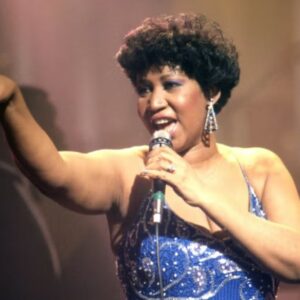Tina Turner’s name is synonymous with music and strength. Her legacy, built on a foundation of remarkable talent, perseverance, and the ability to overcome unimaginable obstacles, resonates in both the entertainment industry and the broader cultural consciousness. Yet, beyond the glittering stage lights and groundbreaking albums, Turner was also a mother, raising two children with love, discipline, and a commitment to helping them thrive in a challenging world. As fans and the public continue to celebrate her extraordinary career and resilience, there has been a growing curiosity about how she approached her role as a parent.
Tina Turner’s parenting style was just as unique as her career. Often, the most iconic figures in the public eye have their personal lives scrutinized, and Turner was no exception. Throughout her career, she navigated her role as a mother with the same determination and grace that she applied to her music and public persona. She raised her two biological children—Craig Turner, whom she had with saxophonist Raymond Hill, and her son Ronnie Turner, whom she shared with her second husband, Ike Turner—while balancing the pressures of fame, a troubled marriage, and the demands of a music career.
But it wasn’t just the challenges of fame or personal hardship that defined her approach to parenting. Tina Turner’s approach to discipline was rooted in love, respect, and a strong sense of responsibility. She instilled in her children a sense of independence, personal accountability, and emotional resilience—traits that would serve them well, especially in the face of the difficulties they would later encounter. In this article, we explore Tina Turner’s unique philosophy on discipline and the way she raised her children to embrace their own strength and self-worth.
1. Setting Boundaries with Love and Respect
Tina Turner’s approach to discipline was grounded in the belief that boundaries should be set with love and respect, rather than fear and punishment. As she famously said, “The best way to teach your children is by example.” Turner’s parenting style was not about rigid rules or authoritarian control. Instead, she believed in establishing a home environment that emphasized clear communication, mutual respect, and understanding.
Turner set boundaries, but she did so in a way that ensured her children felt valued and heard. Unlike the harsh punishments that often dominate traditional disciplinary models, Tina’s approach was to encourage open dialogue and mutual understanding. If her children made a mistake, they weren’t simply punished. Rather, she would calmly explain the consequences of their actions, giving them the opportunity to reflect and learn. By focusing on dialogue and the importance of consequences, Tina taught her children to take responsibility for their actions in a way that didn’t diminish their sense of self-worth.
In a world where it’s easy to mistake strict discipline for effective discipline, Tina Turner understood that discipline should be about teaching, not about punishing. It was about helping her children understand the larger picture—how their actions impacted not only themselves but others as well. By maintaining a balance between being firm and compassionate, Turner was able to create an atmosphere where her children could grow into emotionally intelligent, well-rounded individuals.
2. Leading by Example
For Tina Turner, discipline wasn’t just about setting rules; it was about leading by example. She recognized that children are keen observers, often learning more from what they see than what they hear. This awareness of how her actions would influence her children led her to consistently model the qualities she hoped to instill in them.
Turner was renowned for her resilience, independence, and unshakable sense of self-worth, even in the face of adversity. She faced more than her fair share of hardship, including her tumultuous marriage to Ike Turner, the public breakdown of their relationship, and the challenges of rebuilding her career and life from scratch. But through it all, Tina remained focused on one thing: survival. Her tenacity and unwavering belief in her ability to overcome any obstacle formed the core of her parenting philosophy.
Her children witnessed firsthand the power of persistence and self-reliance. Tina didn’t merely tell them to be strong; she showed them, day in and day out. She led by example, demonstrating that no matter what life threw her way, she would keep pushing forward. Whether it was her decision to leave an abusive marriage, or her remarkable comeback in the music industry after years of being sidelined, Tina’s life was a testament to resilience and personal growth.
Her children absorbed these lessons in ways that were subtle yet powerful. In addition to the love and care Tina poured into their upbringing, she was teaching them, through her own actions, how to be strong, independent, and capable of navigating life’s challenges with dignity.
3. Emphasizing Independence
One of the cornerstones of Tina Turner’s parenting philosophy was the emphasis on independence. Raised in an environment where self-reliance was not just encouraged but demanded, Tina understood the importance of teaching her children how to stand on their own two feet. Her own tumultuous upbringing and personal experiences with hardship taught her that the ability to rely on oneself is one of the most valuable traits a person can possess.
Tina wasn’t a parent who hovered or micromanaged her children’s decisions. Instead, she encouraged them to make their own choices and to face the consequences of those decisions. She taught them that independence didn’t mean isolation; rather, it meant having the confidence to trust in their own abilities and judgment. Tina’s life story, marked by overcoming obstacles and defying expectations, was a model of the power of self-reliance.
In particular, her son Ronnie, who would later follow in his mother’s footsteps into the music business, was raised to understand the value of hard work and determination. She didn’t shield him from the challenges of life, but instead taught him how to navigate those challenges with grace and resilience. Whether it was through her support of his musical aspirations or her insistence on personal responsibility, Tina imparted the critical lesson that independence was the key to a fulfilling life.
Tina’s commitment to teaching independence extended to her older son Craig Turner as well. Despite their different paths—Craig worked as a real estate agent and had a quieter public life—Tina made sure that both of her children understood the importance of standing strong in their own truth, regardless of the pressures or challenges they might face.
4. The Role of Emotional Support
While discipline and independence were crucial elements of Tina Turner’s parenting style, she also knew that emotional support was just as important. She recognized that in order for her children to thrive, they needed to feel safe, loved, and nurtured. Tina understood that emotional well-being is just as important as academic achievement or success in any other area of life.
Tina was known to be deeply loving and affectionate with her children. Even with the pressures of her high-profile career and personal challenges, she made sure to prioritize their emotional needs. She knew that discipline alone wasn’t enough to foster a healthy, well-adjusted individual. Her children were not only taught how to handle the difficult moments in life but also given the emotional tools they needed to cope with those moments in a healthy way.
This balance of tough love and emotional nurturing allowed her children to feel confident in their ability to face the world. They knew that no matter what happened, they had a mother who would always offer a steady source of emotional support, a safe harbor when the world became overwhelming. Tina’s ability to balance these two elements—discipline and emotional support—helped her children navigate the complexities of growing up in a world where fame and personal struggle often intersected.
5. The Importance of Routine and Structure
While Tina Turner’s approach to parenting was warm and nurturing, it was also structured. Routine and consistency were key components of her parenting philosophy. Tina understood that children thrive when they know what to expect. Consistency in both rules and consequences helped provide her children with a sense of security and stability, even during difficult times.
Tina’s ability to create a sense of routine, despite the chaos that often surrounded her, gave her children the grounding they needed to flourish. Regular family activities, meals, and an overall sense of stability helped them feel more secure, which in turn fostered their personal growth. Routine also allowed Tina to reinforce the lessons she was teaching about responsibility and respect.
Her ability to maintain a structured environment, even amidst the whirlwind of her career and personal challenges, was one of the key factors in her successful approach to parenting. It gave her children the foundation they needed to grow into responsible and well-adjusted adults.
Conclusion: Tina Turner’s Enduring Parenting Legacy
Tina Turner’s legacy as a mother is as profound and inspiring as her career as an artist. Through her unique approach to discipline, she showed her children the importance of love, respect, independence, and emotional resilience. She set boundaries with care, led by example, and fostered an environment where her children could grow into strong, independent adults.
Her parenting philosophy was a blend of tough love and emotional support, grounded in the belief that children thrive when they are given the tools to understand their actions, make their own decisions, and navigate life with confidence. Tina Turner’s parenting style is a testament to the power of leading by example, the importance of consistency, and the need for emotional nurturing.
As modern parents continue to seek balance between discipline and emotional support, Tina Turner’s approach remains an enduring guide. In teaching her children to be resilient, independent, and emotionally intelligent, she has left behind a legacy that continues to resonate, not just in the world of music, but in the everyday lives of those seeking to raise strong, capable individuals





